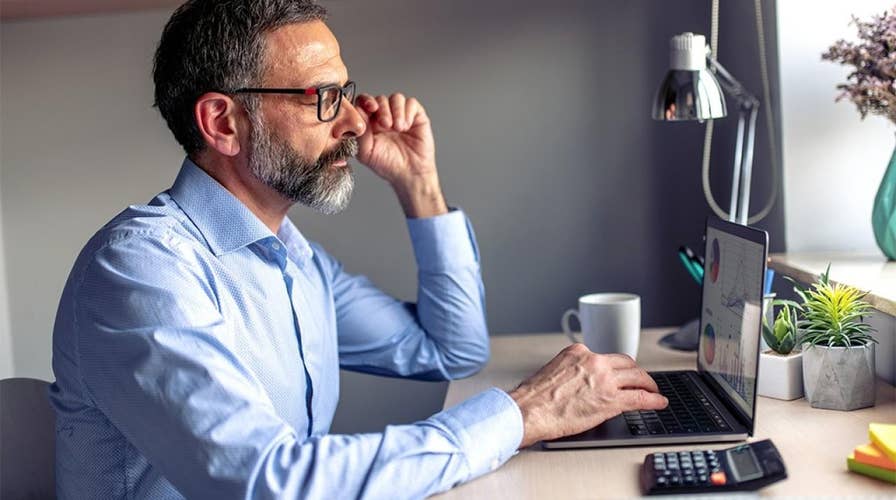8 million Italians continuing to work from home
More Italian workers and companies are opting to work from home amid the coronavirus pandemic. Fox News correspondent Amy Kellogg with more.
MILAN – Italy, one of the countries hardest-hit by COVID-19, is back to work, but it’s a very different place.
The pandemic situation appears to be under control for now and cases have not shot back up as many worried they would. Still, about 8 million Italians have continued what they’re calling “smart working” -- working from home, or a combination of home and office.
Some people have said they felt tentative about being around crowds on transportation and offices just yet, while others simply have taken to remote working. Many employers have encouraged a phased return to normalcy -- if Italy will ever return to the “old normal.”
Microsoft Italy Chief Operating Officer Barbara Cominelli told Fox News that studies have found “smart-workers” to be as much as 25 percent more productive than the traditional office-based employees. Microsoft has been using the model since pre-coronavirus days, and was extremely busy during the lockdown helping clients get their own employees set up in remote situations.
Efficient as “smart-working” can be, Cominelli pointed out, there also could be downsides — the day doesn’t neatly end when one works from home. So, the future may involve a fluid work routine.
“We believe in a balanced situation,” Cominelli said. “When you need to go to the office, you go to the office, and when you don’t, you stay at home. This is a hybrid situation.” But, she stressed the importance of making sure people keep space for their “private life.”
On a roll with its digital drive, Microsoft has just announced a host of investments and initiatives for the digitalization of Italy, believing “smart-working” is here to stay and making sure Italians are prepared to embrace and maximize it.
Another downside to the at-home phenomenon: it’s emptied parts of city centers. That may be good for air quality and pollution, but it’s hurt businesses catering to office crowds. The restaurants at Milan’s City Life shopping center, built at the base of a couple of major office towers, now all but bereft of employees, have been suffering. The food court area was relatively empty on a recent Friday afternoon and some restaurateurs expressed worry about clients not coming back.
CORONAVIRUS SPREADS TO THIS REMOTE LOCATION OF THE WORLD
The Santa Virginia restaurant in Milan’s bustling Brera district used to do a thriving lunch business. Its staffers were excited to open back up after lockdown, but they’ve had to close for lunch, as they did not have enough customers to sustain being open.
The restaurant has been open only a few years, run by the brother and sister team of Francesco and Virginia Sciacca. They said they were just hitting their stride when the coronavirus crisis hit.
“It seems we lived a nightmare because at the end of February we were on television, on 'Master Chef.' Everybody was talking about us. There were lots of people, new clients and a lot of work. Then, in a few days, everything changed in an incredible way,” Francesco Sciacca said.
Bad as the crisis has been for business, Santa Virginia made its contribution to these difficult times. The Sciaccas created affordable and creative food delivery parcels for clients during the lockdown and said they donated half their proceeds to the Civil Protection Agency in Italy that was coordinating crisis response.
CLICK HERE TO GET THE FOX NEWS APP
All of this has been changing the fabric of the city. The real-estate company JLL in Milan has been considering how its role will change post-COVID, looking at solutions that will make people feel comfortable after the collective trauma of this pandemic, not only focusing on the bottom line. The firm also has been discussing hybrid solutions such as one that would create some satellite offices closer to where people live, in the suburbs or other parts of metropolitan areas popular with staff.
JLL Italy CEO Pierre Marin said all this debate about working solutions didn’t mean the office was dead. “The office will always have a future,” he said. “It will be a place of communication and creativity for the people.”



